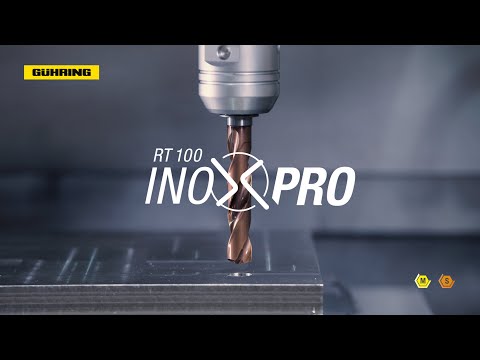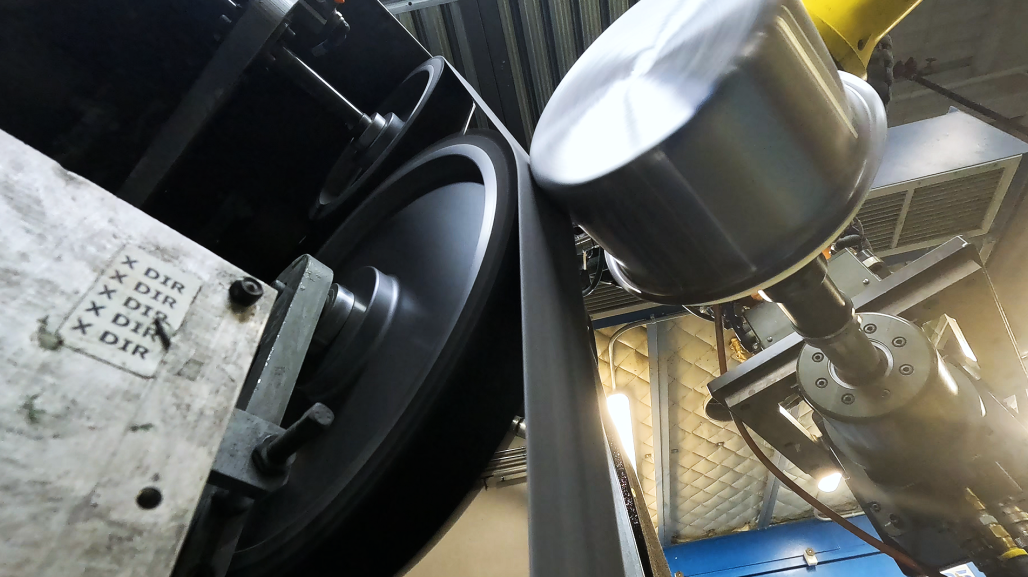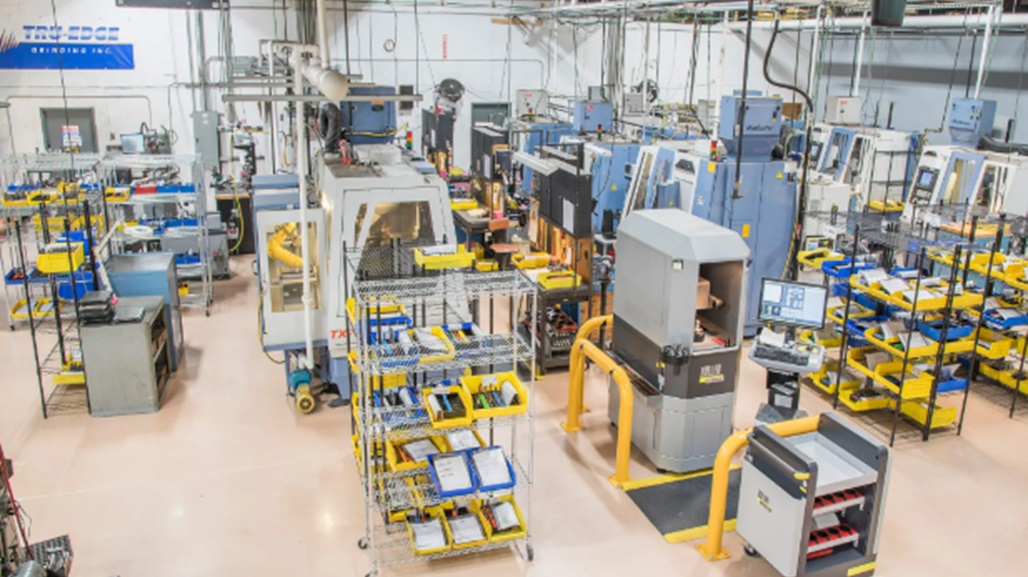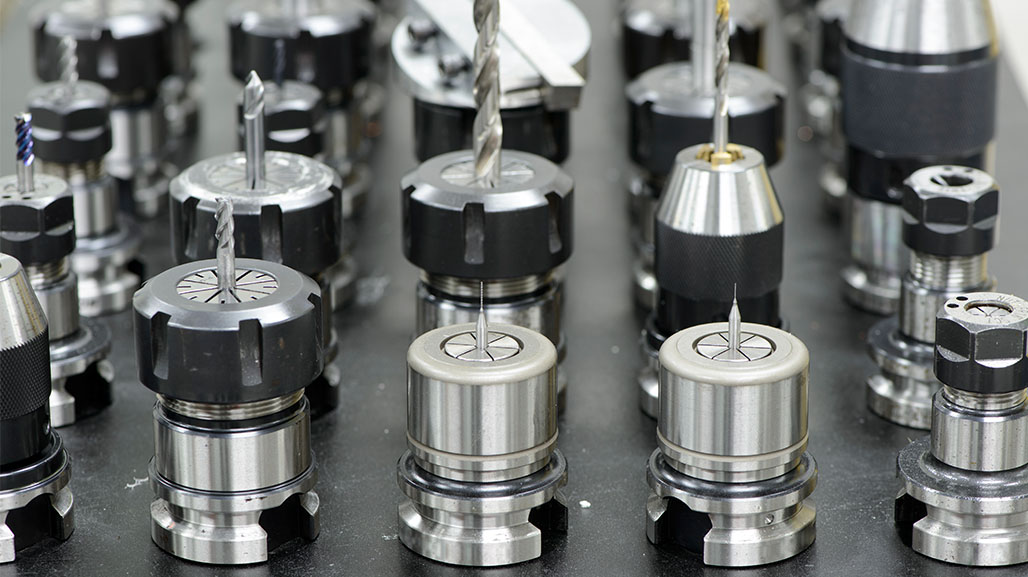Guhring’s InoxPro Drill Pierces Stainless Steel’s Tool-Resistant Armor
Guhring’s RT 100 InoxPro drills help machine shops overcome challenges from tool breakage to workpiece scrapping that occur with stainless steel alloys, titanium and nickel.
Guhring’s RT 100 InoxPro drills help machine shops overcome challenges from tool breakage to workpiece scrapping that occur with stainless steel alloys, titanium and nickel.
No machine shop enjoys having to scrap a workpiece because tool failure damaged it beyond repair.
It’s expensive, forcing the business to pick up the cost of the unusable metal, and it takes a bite out of productivity.
It’s even worse when the workpiece was being fashioned from exotic (read: pricey) metals, such as titanium alloys and high-grade stainless steels, which are notoriously difficult to machine but prized in aerospace designs and medical devices for their durability, comparatively light weights and resistance to corrosion.
Guhring’s new RT 100 InoxPro solid carbide drill is designed to help metalworking businesses avoid such difficulties.
Its unique carbide, geometry and coating combine to produce precise holes in stainless steels and titanium materials while extending tool life and reducing run times.
“We’re seeing 50 percent higher feed rates compared with conventional stainless steel drills,” says Paul Larson, Guhring’s product manager for drills, thread mills and grooving systems. The drill, introduced in late 2023, is an addition to the company’s portfolio of material-specific, high-performance products, which are growing in popularity.
While universal drills can be attractive since they’re less expensive, “when you’re really under the gun and you’re trying to move products out the door to meet a deadline, you want the best quality and the fastest feed rates you can get,” Larson explains.
With the RT 100 InoxPro, Guhring modified its carbide substrate for machining stainless steels, which reach extremely high temperatures during machining and tend to jam, causing drills to get stuck and break.
The carbide’s improved combination of toughness and hardness helps to prevent breakage, the company says, while the tool’s stronger taper and its sickle-shaped cutting edge minimize jamming.
To prevent material from sticking to the drill’s cutting edges, a common problem with stainless steels that can cause parts of the tool to break away, Guhring built the RT 100 InoxPro with particularly smooth surfaces. Polished flutes help improve chip removal and minimize built-up edges.
The InoxPro line includes micro sizes ranging from 0.5mm up to 3mm, and a standard diameter ranging from 3mm to 20mm, the company says. Coolant-through variants are also available.
“It’s hard to beat these drills for the cost relative to the performance that you’re getting,” Larson says. “It’s an incredible value. They’re being implemented in shop vending machines around the country because they’ve performed so well with stainless steels and special alloys.”
Customers have been thrilled with the tools, he adds. One business, for example, found the InoxPro prevented drill breakage that had plagued titanium workpieces crafted with 3D printing.

Food industry customers who rely on stainless steels, meanwhile, say the drill has trimmed cycle time and improved throughput because of the high feed rates and speeds it’s able to achieve.
“They’re able to increase their production because they’re getting better feed rates and they’re not having to change tools as often,” Larson says.
Ultimately, the InoxPro drills enable machine shops working with exotic metals to strike a potentially more profitable balance between meeting ambitious customer deadlines and operating deliberately enough to avoid costly workpiece scrapping.
“They save customers a lot of headaches,” Larson says. “When you’re machining a material that’s expensive and a drill breaks because you’re not using a quality tool or it doesn’t have the proper cutting geometries, you’ve created a lot more issues. Nine times out of 10, you’re going to have to scrap the workpiece and start over, and a very small chunk of nickel alloy could represent thousands of dollars in raw material cost, which doesn’t include the time already spent on milling and contouring it before the drilling even began.”
Preventing such expensive mishaps is particularly important for machine shops and manufacturers in an era where they’re already grappling with higher prices due to inflation and a shortage of skilled workers that hampers productivity.
Easing some of those burdens compounds the benefit of material-specific tools that can produce higher-quality products, potentially leading to increased customer satisfaction and additional business.
“By utilizing cutting tools that are designed specifically for the material that you’re machining, not only do you have a higher process reliability, but you’re also going to get truer, more consistent holes,” Larson says. “The surface finish of the hole will be improved compared with other drills that can leave scoring because of chips.”
What problems have you encountered when drilling high-grade stainless steels and exotic metal alloys? Tell us in the comments below.




